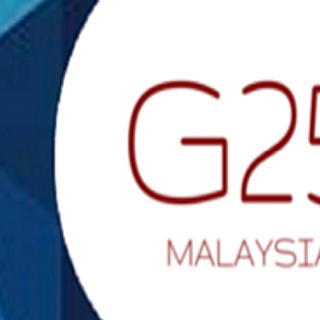Immigration: Complaints About the Behaviour of KPPA
- G25 Secretariat
- Aug 5, 2022
- 2 min read
Updated: Nov 26, 2022
We, members of G25, comprising former senior civil servants, are deeply concerned over the statement issued by the Immigration Services Union of Peninsular Malaysia (KPISM) containing allegations against the KPPA (Director General of Public Service), one of the top three civil servants in the country. The Union claims that its officer on duty at KLIA was badly treated at the VIP lounge when he was humiliated by the KPPA in front of others. The allegation states that the KPPA was angry that the VIP room was closed when he arrived.
The public is entitled to know the true facts about the allegation because it involves the image of the civil service, in particular, the PTD (Administrative and Diplomatic Service), the senior branch of the public service.
We, in G25, respectfully call upon the Public Services Commission to establish a delegated committee of inquiry in accordance with Clause (6) of Article 144 of the Federal Constitution to determine what actually happened at the KLIA VIP lounge and whether the KPPA (Director General of Public Service) was excessive and abusive in his behaviour when accusing the Immigration officer concerned for dereliction of duty; and to take the necessary disciplinary action if the allegations are proven. The inquiry should be open to witnesses and interested parties so that it is transparent to ensure that there is justice to both officers.
This inquiry should be treated as a matter of grave public interest as it concerned a very serious allegation on the conduct and integrity of one of the top civil servants in the country. and Accordingly, its report and findings should be published for public knowledge.
G25 strongly believes in opening the report to the public because transparency is one of the pillars of good governance. We must have the humility to learn from past mistakes. We have seen from past commissions/committees of inquiry that reports are classified as ‘official secrets’ under the Official Secrets Act and it takes ages for them to be released to the public – if at all they are released to the public. Indeed, some reports by independent committees that we know of are never made public at all, for example, the Independent Committee Report on the Fire Outbreak at the Sultanah Aminah Hospital, Johor Bharu, and the Independent Committee Report on the Recruitment and Management of Foreign Workers.
Civil servants are public servants and their conduct and misbehaviour are matters of concern to taxpayers as they provide the government revenue for running the country.
This is about making the government machinery earn the respect of the people. The administrative service, the police, and the MACC control most of the legal powers in running the country. It is therefore critical that they must be seen to be accountable for any abuse of power within their ranks especially at the top levels.





Comments